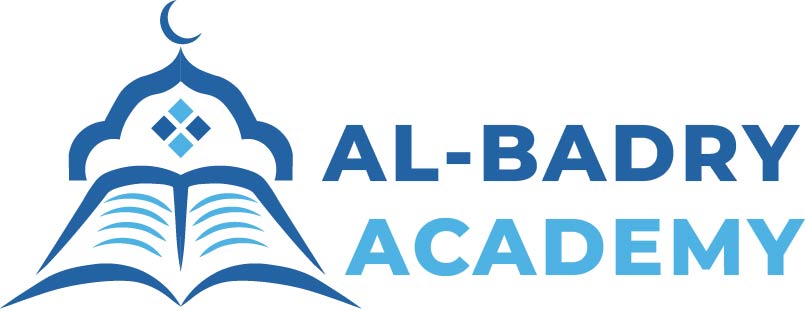The rise of online education has transformed how people acquire knowledge across all domains. Islamic education and Quranic studies have not been immune to this transformation. In fact, digital platforms dedicated to Quran teaching are among the fastest-growing segments of online learning. Albadry Academy stands at the forefront of this shift, offering live, interactive Quran, Arabic, and Islamic studies to learners worldwide.
This post analyzes the reasons why learning the Quran online is more than a trend, it’s the future. It also explains how to maximize benefits from an online Quran academy and compare different models to make an informed choice.
1. Accessibility: Connecting Learners Irrespective of Location
Physical barriers have historically limited access to quality Quran instruction. Remote areas might lack qualified teachers or institutions. An online Quran academy removes that barrier entirely. Students from anywhere in the world can connect with certified tutors via live classes.
Learners who move, travel, or live in diaspora communities can continue seamlessly. That scalability and flexibility make online Quran education more realistic and sustainable than ever.
2. Personalization & One-on-One Engagement
Traditional classroom models often require a “one size fits all” approach. In contrast, online classes, especially one-on-one sessions allow for customization: pace, style, and focus all change depending on the student’s needs.
At Albadry Academy, every class is live and personalized. This means the tutor can immediately correct pronunciation, Tajweed errors, or provide tailored guidance depending on the student’s strengths and weaknesses. Feedback is real time. Mistakes are caught early. Progress becomes measurable.
3. Flexible Scheduling & Time Efficiency
Many prospective learners struggle to align with rigid class times or fixed schedules. Working professionals, students, or parents have varying commitments. Online Quran academies offer flexible times morning, evening, weekends according to time zones.
This flexibility reduces friction and dropout risk. Learners don’t need to commute or follow rigid school hours. They can integrate Quran learning into daily life: after work, before school, during weekends. That alone increases consistency, which is critical in memorization and recitation.
4. Cost Efficiency & Transparent Pricing
Operating a physical institution incurs rent, maintenance, utilities, logistics, and local staffing costs. These get passed to the student. Online models cut many of those overheads.
Albadry Academy offers pricing plans that reflect this economy: transparent, affordable, with different class durations and group vs. private options. Besides, students can save on travel, time, and physical materials, which often become digital. The net cost per lesson is often much lower compared to in-person learning, especially when scaled globally.
5. Technology & Accountability Tools
Online platforms can integrate features that physical classes cannot easily replicate: session recording, progress tracking, automated reminders, quizzes, dashboards, analytics.
At Albadry Academy, every session is recorded so the student can replay and review. Progress reports and certificates are also provided to track advancement.
These accountability tools help learners stay motivated, monitor weak spots, and refine learning strategies. Tutors can also use those records to plan remedial sessions.
6. Cultural & Gender Sensitivity
In many places, some students, especially sisters or more conservative communities may feel more comfortable learning in an environment respectful of gender, cultural norms, and privacy. Online learning allows that.
Albadry Academy provides classes for sisters, women, kids, and adults with tailored tutor matching and environment settings. That inclusivity broadens access without compromising values.
7. Challenges & How to Overcome Them
- Technical & Internet Issues: Poor connectivity can disrupt sessions. Mitigation: choose tutors experienced in low-bandwidth teaching, record sessions, use optimized video/audio.
- Discipline & Accountability: Without a classroom environment, some learners may slack off. Mitigation: scheduling consistency, periodic assessments, progress reports, tutor follow-ups.
- Hands-on Supervision: In a physical class the teacher can observe minute details of recitation. Mitigation: high-quality audio/video setup, slow paced recitation, tutor vigilance, frequent checks.
- Isolation / Motivation Drop: No peer environment can reduce motivation. Mitigation: virtual study groups, regular check-ins, reward systems.
When these challenges are proactively managed, the advantages dominate.
8. Best Practices for Students
- Choose a platform that offers live, one-on-one interaction, not only prerecorded lessons.
- Ensure sessions are recorded.
- Request progress reports and assessments.
- Choose a tutor whose teaching style and command of Tajweed aligns with your preferences.
- Set realistic schedules and stick to them.
- Review recorded sessions regularly and correct mistakes early.
- Supplement with self-study (reading, revision, recitation outside class) to reinforce learning.
Conclusion
Online Quran learning is not just a substitute for traditional methods, it is superior in accessibility, flexibility, cost, personalization, and scalability. The future of Islamic education lies in platforms that combine spiritual depth with modern pedagogy and tech.
If you want to benefit from the best of online Quran, Arabic, and Islamic learning, visit Albadry Academy now. Learn with expert tutors, get flexible scheduling, personalized classes, progress tracking, and global access all from your home.





